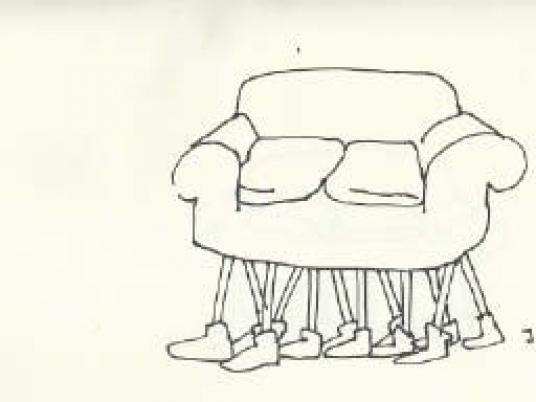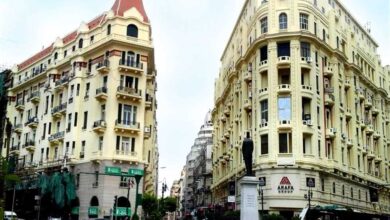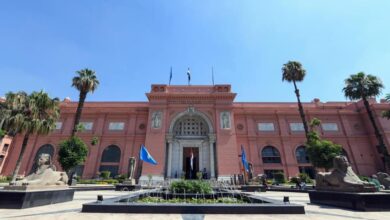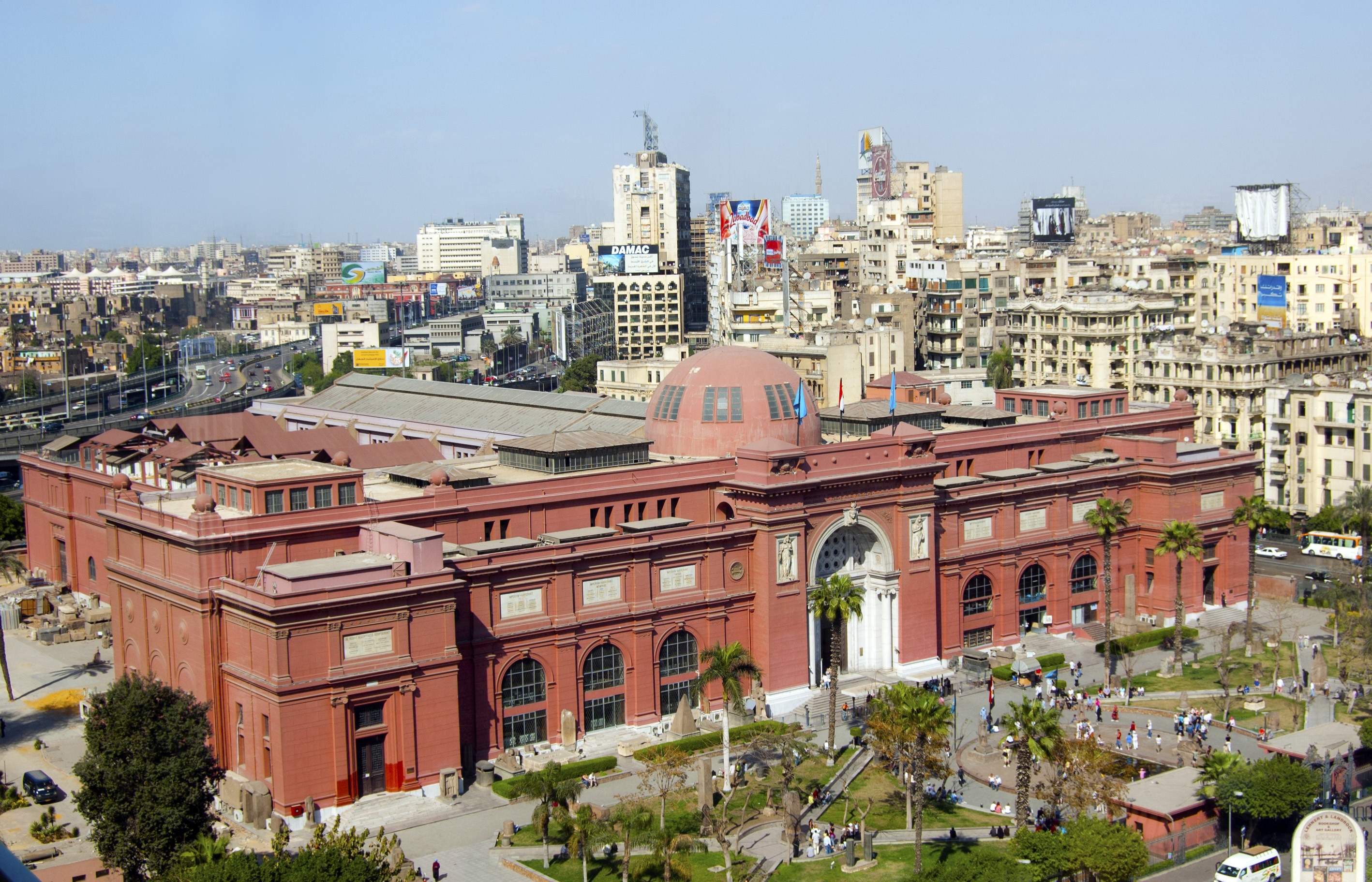
Hezb al-Kanaba, or the so-called “Couch Party,” refers to the silent majority of Egyptians — those sitting on their couches, the churning Tahrir Square roundabout lit on a screen in front of them, leftover dinner on the table.
It seemed that almost the entire country was couch-ridden until only two years ago, but this revolution has brought “Couch Party” members off of their cushions and onto the the city’s streets. It is their participation in the protests against President Mohamed Morsy’s most recent constitutional declaration that has been most visible, as their lifestyles threatened, they come out in droves.
“I only came out to Tahrir this year,” says Ibrahim al-Sayed, 34, who thinks the enemy has become clearer. “I couldn’t really relate in January 2011 because I believed that the regime had taken things too far, but that the extent of the protests was extreme.”
Sayed spent the night in Tahrir Square Friday night and just stopped by home to change before heading back.
But not all of the kanaba folk are in support of the changes that Egypt has undergone in the past two years.
“If only I had gotten up to say my opinion,” says Karim, 56, “maybe someone would have listened and realized that trusting the Muslim Brotherhood was a bad idea.”
But learning to speak up and believe you can make a difference takes a mind shift.
Amira Saber, a psychotherapist and child psychologist, says the kind of passive aggressiveness rampant in Egyptian culture comes from inherited and ingrained suppression.
“Our parents were suppressed, and we act that way too, even if we’ve had the freedom to express ourselves,” Saber explains.
“We’ve really come together this time around,” says Samira Hashem, with a crowd of young, college-aged youths around her.
Hashem explains that last year she was in school, and leaving the “kanaba” wasn’t even an option. “I kept hearing that people would go out and lie to their parents, but my parents are too strict — they would have known.”
The couch-folk of Zamalek headed out in full force recently, with designer bags and large sunglasses, but thankfully opted for flats instead of heels. All the same, they received a good welcome from the activists who have called Tahrir Square home for the past two years. However, some amongst them reflected on their unease at the fact that their long-standing activism is now associated with the silent majority, who may well not share the same politics.
“I felt right at home on Friday the 23rd,” says Pakinam Samir, referring to demonstrations the day after Morsy’s constitutional declaration. “We arrived with a group and stayed for hours listening to speakers and reading signs.”
Samir thinks it was the president’s usurpation of power that really added to everyone’s drive to hit the streets.
“It’s strange to see these people here,” says Amir Seif, a Tahrir Square regular who braved the Qasr al-Nil Bridge on 28 January and has scars on his arm from the Mohamed Mahmoud Street clashes last November. “They look so fresh, like we did back in January, but it’s good to add numbers. We’ve lost a lot of people because the process has taken so long and has been so depressing.”
But not everyone has made it off the couch.
“It’s hard to head out in full force when you have children,” says Riham Salah. “I’m afraid I’ll get arrested — then who will take my kids to school the next day?”
“I can’t leave my children,” says Noura Sabry. “But I try to do my part in the streets by responding to harassers and cops when they step out of line.” Sabry is vocal on Facebook, and goes to Tahrir Square when the violence has ceased.
For others, the issue is the videos of harassment on YouTube — women being almost stripped down by a group of guys rumored to be standing near Hardee’s.
“My husband passed through Tahrir Square the other night and had to join with a group of men to rescue a woman who was being stripped,” says Salah.
“Just the idea that Hezb al-Kanaba is a hezb is enough,” says Sabry. “A party of people who fight their battles on Facebook, over coffee at the club and in the streets of their everyday lives are still fighters.”
This piece was originally published in Egypt Independent’s weekly print edition.




